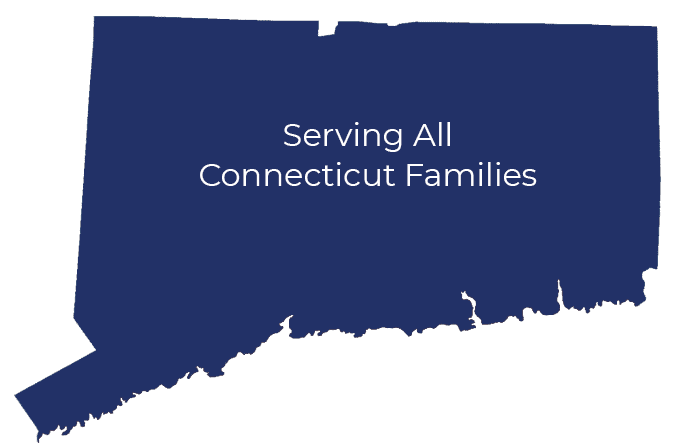The recent Coronavirus, or Covid-19, pandemic is affecting many aspects of life in Connecticut. This includes matters related to family and divorce law. The courts across the state are only open to hear limited family law matters. This mandate officially went into on March 13, 2020. At this point in time, the state has not indicated when the courts will lift the restrictions.
What Actions will Connecticut Courts Hear?
The Connecticut Judicial Branch will only be addressing Priority 1 business matters. Priority 1 matters are generally reserved to emergency matters. Generally, family law matters are not Priority 1 unless they constitute an emergency. Priority 1 family law matters include family orders of relief from abuse, emergency ex-parte orders of temporary custody, and termination of parental rights.
What Will Happen to My Scheduled Court Date?
Individuals that had a scheduled court day regarding a non-Priority 1 matter up until March 27th will have their court date canceled or rescheduled to a later date. The court has not officially canceled any matters that are scheduled after March 27th at this time.
How to Use Alternative Dispute Resolution to Resolve Disputes?
With the courts hearing only very limited family law matters now, you may want to consider the use of Alternative Dispute Resolution to resolve your matter. The firm of Schoonmaker, George, Blomberg, Bryniczka & Welsh have a dedicated ADR department, led by Judge Thomas D. Colin (Ret.). The ADR department at the firm is available to assist with mediations, arbitrations, and other forms of ADR. These forms of ADR can be used to resolve short calendar matters, contested limited issue financial and custody matters, and an entire divorce proceeding.
Can I File for Divorce During the Coronavirus Pandemic?
In Connecticut, many family law actions, such as filing for divorce, can be completed electronically. This means that an individual can start the divorce process during the Covid-19 quarantine period. An experienced divorce attorney may also help exchange discovery requests, draft financial affidavits, and negotiate parenting plans remotely.
An important consideration for individuals filing for divorce is that there may be an increase in court activity once normal procedures resume. While the divorce process may generally take up a year to complete, that timeframe may be extended due to an influx of court actions. Additionally, individuals may still file for motions during the Covid-19 quarantine for a pending divorce action. Non-emergency motions in Connecticut family courts are generally scheduled to be heard around 3 to 4 weeks after filing. Speaking to a knowledgeable family law attorney now may expedite the process or enable them to better understand the new timeframe for your case.
Legal Options for Those Financially Impacted by Covid-19
Those experiencing a significant change in their financial situation may want to consider filing a motion for modification. Filing a motion for modification may adjust child support and/or alimony to reflect an individual’s new financial situation. This includes changes in employment or revenue due to the Coronavirus.
Connecticut family courts have the discretion to modify financial orders retroactively if the motion is properly served on the opposing party. Because of this, it may be best to file a motion to modification now rather than wait for when the courts resume normal operations. However, until a divorce decree is modified by the court, an individual is still bound by their current obligations. Failure to adhere to these obligations may result in an ex-spouse filing a contempt motion. Speak to an experienced family law attorney today to discuss your options.
How the Covid-19 Pandemic Affects Parenting Plans
Similar to financial matters, a parenting plan must be followed, even during the Coronavirus outbreak. If you have concerns about your child’s safety during the pandemic, it is best to reach out to the parent of the other child to discuss these concerns and attempt to reach an agreement. If an agreement is reached, it is best to express that agreement in writing. If an agreement cannot be reached, an experienced family law attorney can guide you through your options.
Consulting the advice of medical experts, such as doctors, and following declarations issued by the government may also help ensure your child’s safety. Parents in joint legal custody of a child may also have a legal obligation to inform each other of information regarding the child’s health and safety. This may include alerting the child’s other parent of medical appointments, emergency room visits, or potential exposure to infection vectors.
Can School Closures Affect My Connecticut Parenting Plan?
With schools closing across the country and Connecticut, an established parenting plan may be affected. Some parenting plans may include provisions designating a change in custody before or after the child attends school. Similarly, parenting plans may designate a change is custody based on work schedules that may no longer apply. When issues with parenting plans arise, it is best to first attempt to reach an agreement with the child’s other parent. If an agreement cannot be reached, an attorney can discuss your options and select the one that best fits your situation.
Can I Stop My Child from Traveling During the Covid-19 Pandemic?
If you have concerns about your child traveling with their other parent during the Coronavirus pandemic, there are several options available to you. The first thing you should do is discuss your concerns with the child’s other parent and attempt to reach an agreement. If an agreement cannot be made, it is best to consult an attorney. An experienced attorney may consider filing an emergency motion if the child’s health or safety may be at risk due to travel. Filing emergency parenting motions would be classified at a Priority 1 business function and may be heard by the court.
Contact an Experienced Family Law Attorney Today
Navigating family law matters during unexpected and extraordinary circumstances can be stressful for both parents and children, especially in these difficult times. A knowledgeable Connecticut family law attorney may be able to examine your specific case and select the most favorable option for you. Contact the experienced legal team at Schoonmaker, George, Blomberg, Bryniczka & Welsh P.C. today to discuss your legal options.







